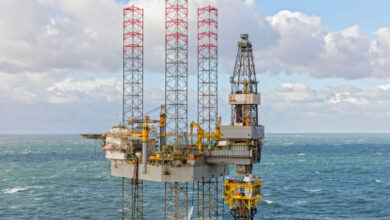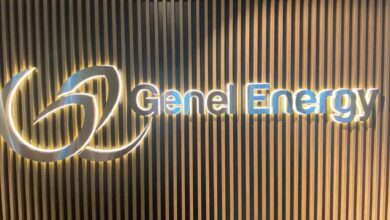Data pods provide BOP, riser info from two Barents Sea wells

Fugro has delivered a motion dataset from the BOP stack and lower riser of two deepwater wells in the Barents Sea using its DeepData pods. The pods are the core of a data acquisition system designed to operate in depths up to 2,400 m. The pods use high-precision accelerometers and angular rate sensors to determine motions and rotation at specified locations. DeepData also accepts inputs from external sensors, such as strain gauges.
To verify the integrity of its subsea assets during a drilling campaign in the Barents Sea, the client recorded motion and strain of the wellhead, BOP and riser for two wells to quantify fatigue damage incurred by the wellhead.
Through its Wellhead and Riser Instrumentation Service (WARIS), Fugro provided a timely response, which included a team of specialist engineers and six modular, self-contained DeepData pods configured to meet the client’s requirements. Fugro also deployed a set of adaptable clamp-on subsea strain gauges.
Operating in water depths up to 1,400 m, the modular logging system collected and analyzed data from a range of sensors at critical wellhead locations. An ROV was used for interim data recovery and battery replacement.
The DeepData pods achieved a 100% data recording success rate during a deployment of nearly one year. The resulting datasets will enable Fugro’s client to build a history of wellhead fatigue and recalibrate the fatigue model of the riser. This information will enable detailed analysis of vortex-induced vibrations and wellhead fatigue so that the remaining fatigue life of the assets can be estimated. The client will be able to manage well interventions more effectively in the longer term, achieving significant cost benefits as a result.




